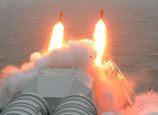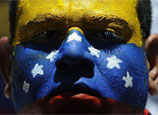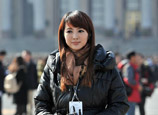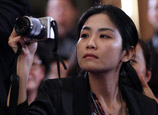
Zhao Miao, director of "'Aquatique", said, "By showing our art form in a more contemporary and more international way, we are trying to promote traditional Chinese art and Chinese stories in western countries. Meanwhile, we hope that this art form can earn more recognition and appreciation from local audiences."
The show debuted in France last June, and is set to return to Europe later this year. Talks are under way about taking it to the United States as well. But its success doesn't mean all Chinese plays can follow the same model. Some cultural experts say it used to be easy to sell shows with Chinese elements. But now, the process is more market-oriented.
Xu Lena, marketing specialist of Shanghai Opera House, said, "International buyers are now rather cautious. Foreign performing arts agencies are no longer attracted just by Chinese traditions. They are asking us for specific plans."
Peking Opera and Chinese folk music and dance are still popular in western countries, but some insiders suggest that Chinese arts could have a greater impact overseas.
Cathy Barbash, president of Barbash Arts Consulting, said, "The first thing Chinese need to do, to enable them to increase their export of culture is understanding international market, which is quite complex. The market is highly segmented. They need to go and need to spend time, and build up relationships with the presenters, the people who put on the arts."
China's Ministry of Culture says Chinese artists performed more than 200 shows around the world last year. More than 60 percent of those were music and dance productions.

















 Thousands of policemen hunting car, baby stealer in Changchun | Update: Stolen car found, baby still missing
Thousands of policemen hunting car, baby stealer in Changchun | Update: Stolen car found, baby still missing


![]()
